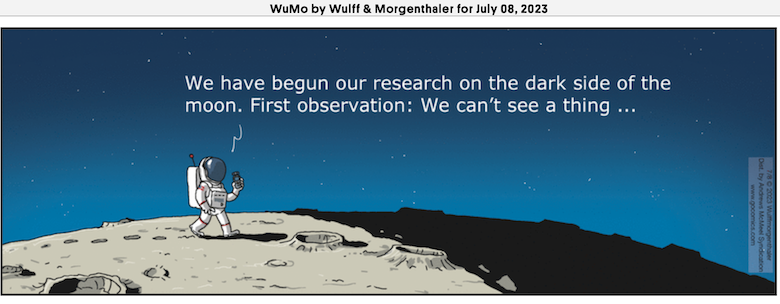Given all the depressing news in the world right now, it is refreshing to read about things that are really silly but taken seriously by people who should know better, like the members of Congress. I am referring of course to the hearings on so-called Unidentified Aerial Phenomena (UAP). On the surface is nothing remarkable about things in the sky that we have not as yet identified. But they have become identified in the minds of true believers with visitations by extra-terrestrials. Furthermore these people are convinced that the US government knows about these things but is hiding it from us.
[Read more…]


